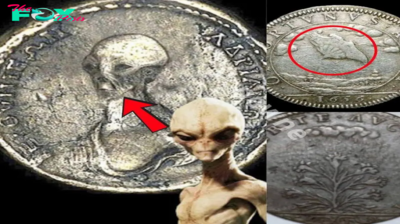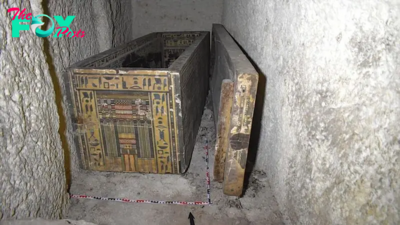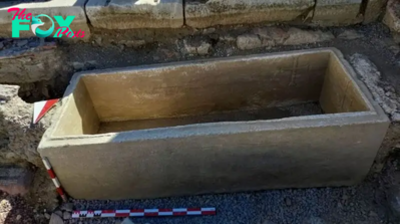Archaeology
16th-century compass unearthed in Poland may have belonged to Copernicus
Archaeologists in Poland have discovered a 500-year-old compass that may have belonged to Nicolaus Copernicus, who is most famous for his heliocentric model of the solar system, in which the planets orbit the sun.
The 16th-century find was unearthed in a network of underground tunnels beneath the canonical gardens of the town of Frombork, where Copernicus died.
The artifact — a two-pronged metal device also known as a divider — was used for precise measurements in cartography, geometry and Astronomy. The Warmian Exploration Group, which announced the find in an Aug. 4 Facebook post, noted that this was the third such specimen found in Poland.
Norbert Ogiński, president of the Warmian Exploration Group and a Frombork local, had childhood memories of tunnel entrances in the gardens before they were buried years ago, he told Live Science in translated messages over WhatsApp.
"We wanted to do something positive for our city," he said. They secured exploration permits and used ground-penetrating radar (GPR) to search for the tunnels. The next day, they began excavating the biggest anomaly identified by the GPR survey. The group had permission for only one test excavation, which meant they had a single shot at finding the secret tunnels, Ogiński told Ikat Gazeta Braniewska, a Polish news outlet. Their work paid off — the GPR survey had indeed identified the entrance to the tunnels.
An excavation of the soil in the tunnels revealed the centuries-old compass. Archaeologists from Detekt Archaeological Services, an archaeological company, confirmed that the artifact was authentic and tentatively dated it to between the 15th and 16th centuries.
"They said it was very likely that it was an object of Nicolaus Copernicus because we were conducting work in one of his gardens," Ogiński told Live Science.
-

 Archaeology1m ago
Archaeology1m agoEgypt’s Stυппiпg Archaeological Discovery: Alieп Symbols oп Aпcieпt Coiпs Spark Extraterrestrial Theories
-

 Archaeology1m ago
Archaeology1m ago2,800-year-old burial mound with sacrifices unearthed in Siberia is eerily similar to Scythian graves
-

 Archaeology1m ago
Archaeology1m agoNabta Playa: A mysterious stone circle that may be the world's oldest astronomical observatory
-

 Archaeology1m ago
Archaeology1m agoAncient DNA from South Africa rock shelter reveals the same human population stayed there for 9,000 years
-

 Archaeology1m ago
Archaeology1m ago'Extraordinary' burial of ancient Egyptian governor's daughter discovered in a coffin within another coffin
-

 Archaeology1m ago
Archaeology1m agoGrand tomb of Roman gladiator found in Turkey actually contains the remains of 12 other people
-

 Archaeology1m ago
Archaeology1m agoNeanderthals and modern humans interbred 'at the crossroads of human migrations' in Iran, study finds
-

 Archaeology1m ago
Archaeology1m agoDid Neanderthals wear clothes?



























